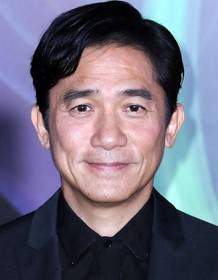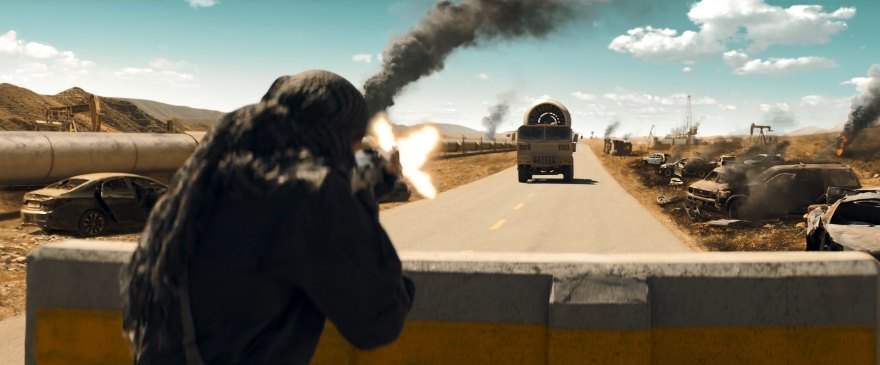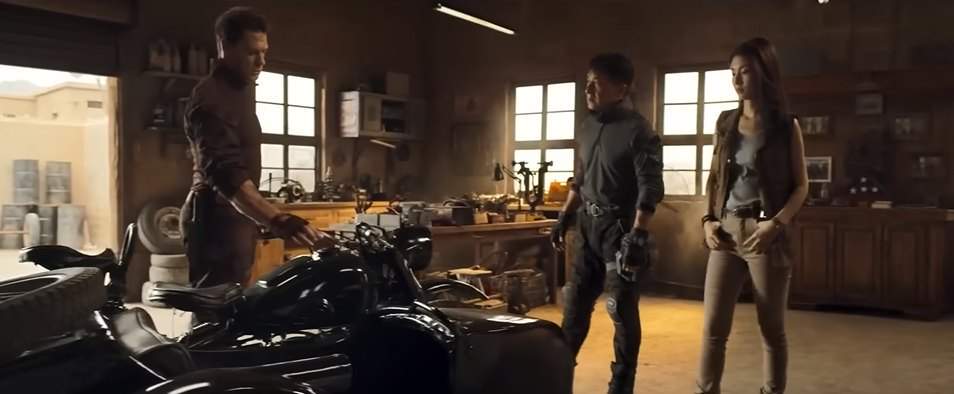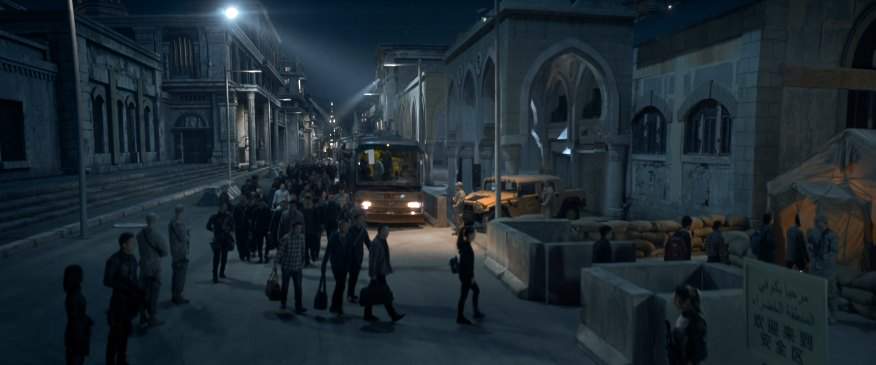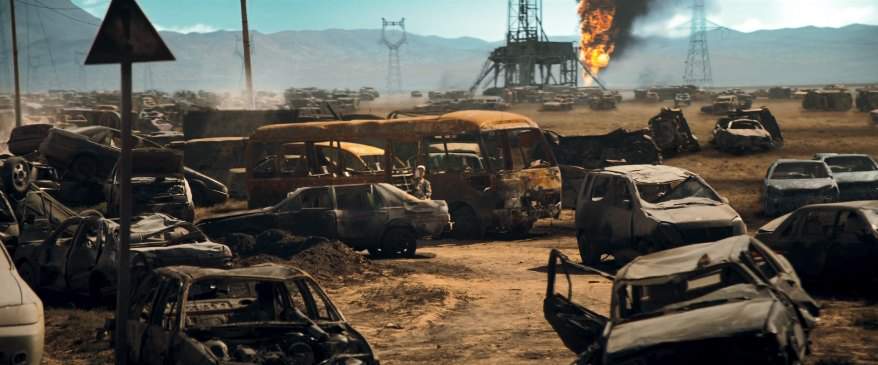Hidden Blade 2023
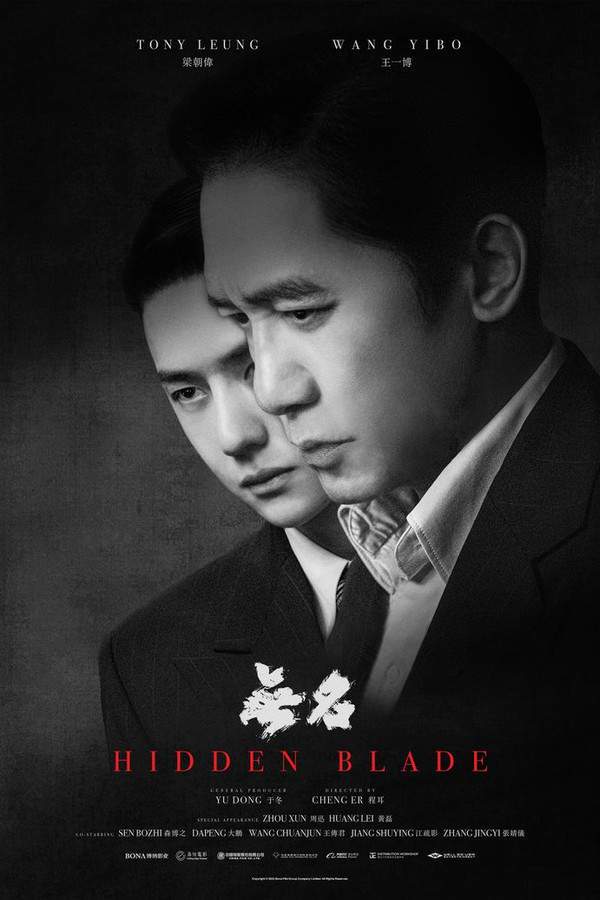
During wartime China, a covert team of agents undertakes dangerous missions to thwart the Japanese occupation. Operating undercover, they skillfully gather vital intelligence from within enemy lines. Their actions fuel a growing resistance movement, demanding immense courage and sacrifice as they work to alter the course of the conflict and fight for their nation’s freedom.
Does Hidden Blade have end credit scenes?
No!
Hidden Blade does not have end credit scenes. You can leave when the credits roll.
Meet the Full Cast and Actors of Hidden Blade
Explore the complete cast of Hidden Blade, including both lead and supporting actors. Learn who plays each character, discover their past roles and achievements, and find out what makes this ensemble cast stand out in the world of film and television.
External Links and Streaming Options
Discover where to watch Hidden Blade online, including streaming platforms, rental options, and official sources. Compare reviews, ratings, and in-depth movie information across sites like IMDb, TMDb, Wikipedia or Rotten Tomatoes.
Ratings and Reviews for Hidden Blade
See how Hidden Blade is rated across major platforms like IMDb, Metacritic, and TMDb. Compare audience scores and critic reviews to understand where Hidden Blade stands among top-rated movies in its genre.

The Movie Echo Score
Hidden Blade presents a visually polished spy noir that succeeds in atmosphere and performance, yet its narrative structure hampers consistent engagement. Critics highlight strong cinematography and nuanced acting, while noting a disjointed, non‑linear plot that can feel laborious. User feedback reinforces the film's aesthetic merits and occasional emotional resonance, but also points to confusion in story pacing. The net impression is a commendable craft piece with mixed storytelling effectiveness, offering modest rewatch appeal.
The Movie Echo Score Breakdown for Hidden Blade

Art & Craft
In terms of direction and visual execution, the film garners notable praise for its cinematic intricacies and immaculate scene composition. Critics and users alike commend the crisp, stylish framing and effective editing, though some note occasional static moments and repetitive set‑ups. The overall artistic craft leans toward a strong, refined presentation despite minor pacing concerns.

Character & Emotion
When assessing performances, the ensemble is broadly lauded for nuanced portrayals, especially Wang Yibo's measured intensity and Tony Leung's charismatic presence. Reviewers emphasize emotional depth and chemistry among spies, with occasional remarks about wooden moments that do not outweigh the general strength. Character work stands out as a primary asset of the film.

Story & Flow
Storywise, the narrative’s non‑linear structure draws both intrigue and frustration. Critics label the plotting as cluttered and at times monotonous, while several viewers appreciate the puzzle‑like pacing and unexpected twists. The mixed feedback reflects a balance between engaging espionage intrigue and moments of disjointed chronology, resulting in a moderate overall assessment.

Sensory Experience
The sensory experience benefits from a lush visual palette and a resonant score, delivering a stylized wartime ambiance. Positive remarks focus on the film’s atmospheric sound design and striking cinematography; criticisms centre on occasional static scenes. Overall, the sensory elements contribute significantly to immersion and are regarded as a strength.

Rewatch Factor
Rewatch value emerges from the film’s layered mystery and atmospheric style, prompting viewers to notice new details on subsequent viewings. Some users find the puzzle aspect rewarding, while others cite narrative confusion that hinders repeat enjoyment. The consensus suggests a reasonable, though not universal, incentive to revisit the film.

59
Metascore
9.2
User Score


67%
TOMATOMETER

98%
User Score

8.9 /10
IMDb Rating

63
%
User Score

3.3
From 37 fan ratings

5.00/5
From 3 fan ratings
Take the Ultimate Hidden Blade Movie Quiz
Challenge your knowledge of Hidden Blade with this fun and interactive movie quiz. Test yourself on key plot points, iconic characters, hidden details, and memorable moments to see how well you really know the film.
Hidden Blade Quiz: Test your knowledge on the intricate plot and characters of the 2023 film Hidden Blade.
What year does the flashback in the film take place?
1938
1941
1945
1939
Show hint
Full Plot Summary and Ending Explained for Hidden Blade
Read the complete plot summary of Hidden Blade, including all major events, twists, and the full ending explained in detail. Explore key characters, themes, hidden meanings, and everything you need to understand the story from beginning to end.
As a haunting flashback unfolds, we encounter a young He, portrayed by Tony Leung Chiu Wai, huddled in a makeshift mine alongside fellow survivors, witnessing the tragic end of Guangzhou’s fate in 1938. This formative event would propel him toward a formidable career, culminating in his role as the director of Shanghai’s Political Security Department—a counterespionage division overseen by Officer Watanabe.
In the lead-up to the fateful bombing of Pearl Harbor in 1941, Director He consolidates his position within the regime, all while secretly collaborating with the Chinese Communist Party, alongside his wife, Ms. Chen, played by Xun Zhou. Their covert partnership revolves around providing vital intelligence to the underground network, ultimately aimed at dismantling Japanese occupation through espionage. Ms. Chen’s guidance under her husband’s watchful eye is symbolized through the pastries she discreetly sends him from a local bakery.
While Director He masquerades as a loyal agent of the Wang Jingwei regime, he diligently carries out assassinations, interrogations, and torture to garner the trust of Officer Watanabe. Watanabe’s circle includes Minister Tang, played by Lei Huang, Captain Wang, and young officer Mr. Ye, depicted by Yibo Wang. Officer Watanabe, driven by ambition, believes that climbing the ranks of the puppet government is his ticket to power, yet he is always cautious of the true intentions of those around him.
Director He’s determination deepens when he covertly saves Ms. Jiang played by Shuying Jiang, a communist spy, from certain doom after her failed assassination attempt on Minister Tang. This action grants him access to invaluable intelligence about crucial Japanese figures, including a Japanese prince in military service. The repercussions of this knowledge will echo throughout his story.
The initial intent to negotiate peace between Japan and the Chiang regime suggests a redeployment of Japanese forces against the Soviet Union. This plan would inadvertently allow the Chiang regime to continue its battle against the Chinese Communist Party, effectively ceding control of Manchuria. Armed with newfound intelligence, the Chinese Communist Party launches a surprise strike, obliterating the Japanese prince and his aides during their final mission. This devastating turn of events not only disrupts negotiations but also fatally tarnishes Officer Watanabe’s reputation.
Amid these crumbling alliances, the relationship between Mr. Ye and his dancer lover, Ms. Fang, played by Jingyi Zhang, faces a brutal severance due to Captain Wang’s treachery. The chilling news of Ms. Fang’s murder by ideological adversaries shakes Mr. Ye’s already fragile psyche, pushing him toward a blind fury against unsuspecting Japanese soldiers.
Officer Watanabe’s growing suspicion regarding Director He’s true loyalties intensifies after discovering his tie to Minister Tang. This doubt leads Watanabe to manipulate Mr. Ye into becoming a pawn in his political tug-of-war.
The declaration of war against Great Britain and the United States following Pearl Harbor sends tremors of upheaval through Shanghai, now under Japanese military occupation. In this hostile environment, Mr. Ye finds himself increasingly entwined with Watanabe, who seeks to propel his own ambitions through Mr. Ye’s unsuspecting assistance.
Mr. Zhang’s desperate bid for freedom with Ms. Chen is thwarted after learning of her concealed marital ties. This shocking realization forces him to reevaluate his motivations, ultimately choosing to turn himself in to the Shanghai Political Security Department, unwittingly betraying the Chinese Communist Party. However, this act of betrayal would come back to haunt him at the hands of Director He.
In a stunning twist, Watanabe instructs Mr. Ye to eliminate the elusive Director He, culminating in a harrowing confrontation at Ms. Chen’s apartment. In the aftermath, a bruised Mr. Ye presents himself to Watanabe with a report claiming that Director He has been apprehended and that Ms. Chen has paid with her life. This act earns him a promotion to Watanabe’s secretary, along with crucial schematics detailing Japan’s occupation of China through Manchuria.
As the narrative progresses, Mr. Ye and Watanabe shift their focus toward Manchuria, eager to explore new frontiers in both the political and military arenas, forever altering their paths.
As Director He inadvertently steps out of prison, cloaked in the guise of a political detainee, an unexpected sight greets him: Officer Watanabe and Mr. Ye, now constrained by the same fate as fellow inmates in a prison truck. The tension is thick as the two engage in a verbal sparring match, their animosity simmering just beneath the surface. In a cramped washroom, Watanabe expresses a crisis of confidence regarding the war, contemplating the possibility of a simpler life as a farmer, suggesting they could both seek absolution for their pasts. However, Mr. Ye silences him with a chilling stare, insinuating that Watanabe’s fate should rightfully be execution due to his role in the war.
Hidden behind this fragile façade, Mr. Ye’s true alliances come to light; he has been serving as a double agent on behalf of the Chinese Communist Party under the guidance of Director He. The information provided by Watanabe turns out to be instrumental in ensuring the downfall of Manchuria. When the moment of treachery arises, Mr. Ye successfully dispatches Watanabe using Director He’s own weapon, an act that underscores the calculated nature of their subterfuge.
The film then leaps to 1946 Hong Kong, unveiling that Ms. Chen is indeed alive, living a quiet life alongside Director He and Mr. Ye. The trio seamlessly blends into the crowd, their pasts discarded like old secrets. Mr. Ye momentarily slips away, buying a cup of coffee for Ms. Chen at a charming café before visiting Captain Wang’s family restaurant, where tales of escape and hope for their missing son linger in the air. Mr. Ye vanishes into the throng once again, all while visiting a nearby temple where Director He is found in prayer. Upon his return to Shanghai, Director He encounters the familiar sight of his wife’s bakery, a poignant reminder of the life they once had.
As the intricate narrative unfolds, it returns to Captain Wang, presenting an intimate moment with Mr. Ye that reveals shocking truths regarding Ms. Fang’s death. Initially, Captain Wang’s skepticism prompts him to raise his weapon toward Mr. Ye, a futile effort stemming from desperation to assert control. However, as he gazes down the barrel, he realizes that all bullets have been stealthily removed by Mr. Ye, rendering his defensive stance harmless.
This crucial shift in power dynamics exposes Captain Wang’s vulnerability, as Mr. Ye’s true commitment to the Chinese Communist Party emerges. The heartbreaking consequences of this revelation unfold swiftly, allowing Mr. Ye to exploit Captain Wang’s moment of distraction and deliver the ultimate blow, leaving his fate enveloped in uncertainty.
In this pivotal segment, the film artfully orchestrates a series of events that meticulously unveil the ominous features of their treacherous world while highlighting the merciless pragmatism embodied by Mr. Ye. His calculating nature proves capable of extinguishing even the most resilient foes. This grisly outcome serves as a potent reminder that, in such a cutthroat landscape, perceived strength can dissolve rapidly in the presence of cunning and strategy.
Uncover the Details: Timeline, Characters, Themes, and Beyond!

Coming soon on iOS and Android
The Plot Explained Mobile App
From blockbusters to hidden gems — dive into movie stories anytime, anywhere. Save your favorites, discover plots faster, and never miss a twist again.
Sign up to be the first to know when we launch. Your email stays private — always.
Watch Trailers, Clips & Behind-the-Scenes for Hidden Blade
Watch official trailers, exclusive clips, cast interviews, and behind-the-scenes footage from Hidden Blade. Dive deeper into the making of the film, its standout moments, and key production insights.
Cars Featured in Hidden Blade
Explore all cars featured in Hidden Blade, including their makes, models, scenes they appear in, and their significance to the plot. A must-read for car enthusiasts and movie buffs alike.
Hidden Blade Other Names and Titles
Explore the various alternative titles, translations, and other names used for Hidden Blade across different regions and languages. Understand how the film is marketed and recognized worldwide.
Quick Links: Summary, Cast, Ratings, More

What's After the Movie?
Not sure whether to stay after the credits? Find out!
Explore Our Movie Platform
New Movie Releases (2025)
Famous Movie Actors
Top Film Production Studios
Movie Plot Summaries & Endings
Major Movie Awards & Winners
Best Concert Films & Music Documentaries
Movie Collections and Curated Lists
© 2025 What's After the Movie. All rights reserved.




